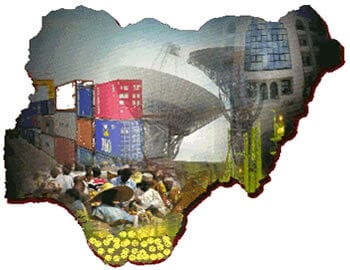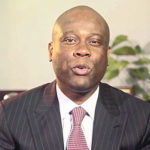ALTHOUGH, the United Nations predicts that the African continent will be one of the most severely impacted regions in the world by climate change, it has been discovered that South Africa, Morocco and Nigeria, make up more than 97 percent of the total issuance of green bonds in Africa.
Specifically, the United Nations stated that the impacts will manifest in widespread water stress and declining agricultural yields throughout the continent, exacerbating food insecurity, malnutrition, and poverty.
Within Africa, the distribution of the funds raised by green bond issuance has been overwhelmingly concentrated in South Africa. With nearly three-fourths of the total market share, South Africa leads the continent by an extremely wide margin a new report from the Stockholm School of Economics’ Sustainable Finance Center highlighted.
Green bonds—a relatively new, innovative financial product that raises funds for environmentally aligned sustainable development projects in accelerating climate change mitigation and adaption, play great role in the project finance space.
According to the report, climate-conscious energy and building dominate Africa’s use of green bond financing with 47 percent and 39 percent, respectively, of the market share.
The “Others” category, where nearly a tenth of the funding is directed, constitutes projects like low-carbon transportation, resource conservation, and waste management, it stated.
In spite of green bonds’ potential, the report also finds that the African private and public sectors have lagged behind other emerging markets in their issuance of these innovative bonds.
Although characterised by all the same features of a traditional bond in terms of structure, risk, and expected returns, green bonds are distinguishable by their environmental purpose.
First issued in 2007 by the European Investment Bank, green bonds—also known as climate bonds—direct financing exclusively to projects with positive climate, environmental, and sustainability outcomes across a myriad of sectors, including energy, transportation, construction, agriculture, and water.
These projects span from renewable energy infrastructure and upgrading energy efficiency to low-carbon transportation and buildings. The global market for green bonds experienced an explosion after 2013, with a more than 300-fold increase in issuance between 2007-2019 and a 104 percent average annual growth rate over the same period.
The report attributes growing appetite for investment vehicles with positive impacts on climate and the environment to their reputational benefits, as well as to the exponential growth of this new market.
It further highlighted that while the explosive growth of green bond issuance signals positive inroads for facilitating sustainable development, Africa has been the slowest adopter, limiting the potential for these innovative financial products to raise ancillary capital for sustainable development throughout the continent.
YOU SHOULD NOT MISS THESE HEADLINES FROM NIGERIAN TRIBUNE
Cryptocurrency: Understanding The Craze, Threat
ON Friday, February 6, the Central Bank of Nigeria (CBN) rocked the boat with a circular that inadvertently highlighted how popular cryptocurrency transactions have become among Nigerians in recent years, judging by…
ICYMI: Yoruba, Hausa Teachers Needed In US
The US Embassy and Consulate in Nigeria has announced that the services of Yoruba and Hausa teachers are needed in the United States. According to the Public Affairs Section of the US Mission Nigeria…
Controversy Over Man Who Jumped From 7th Floor Of 1004 During EFCC Raid
The police in Lagos State have begun investigations into the circumstances surrounding the alleged death of a man at 1004 Estate, Victoria Island, who allegedly jumped from the 7th floor of one of the buildings. The man was…
INEC Lists Five Challenges Ahead Of 2023 Elections
AS politicians step up horse-trading ahead of subsequent elections, the Independent National Electoral Commission (INEC) has listed five main areas of likely challenges…
After Two Years, Daddy Freeze Apologises To Bishop Oyedepo
Daddy Freeze whose real name is Ifedayo Olarinde has apologised to Bishop Oyedepo who is the presiding bishop and founder of Living Faith Church aka Winners Chapel…





